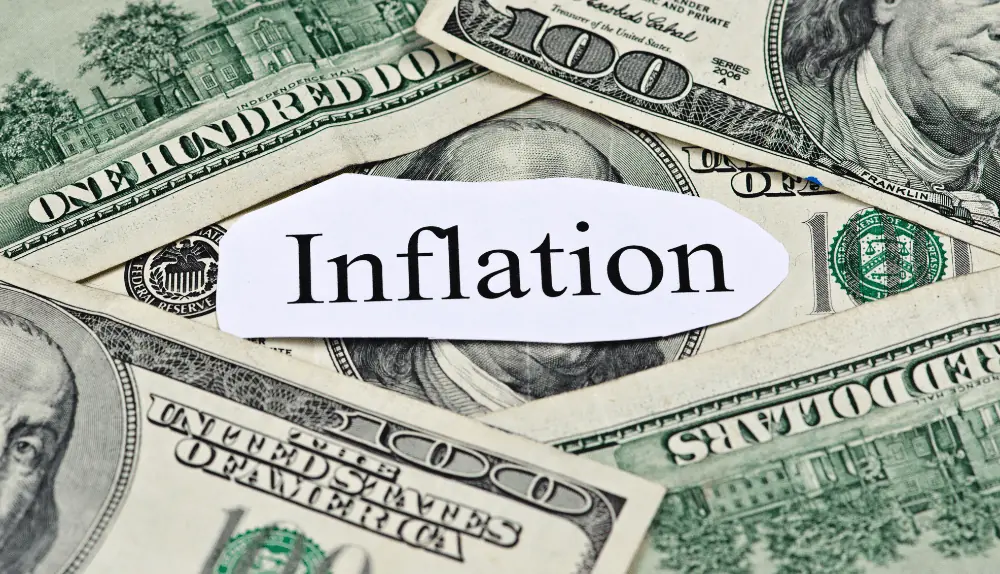As an ecommerce business owner, your merchant account plays a crucial role in processing payments and facilitating purchases for your customers. However, high inflation rates can significantly impact your merchant account and fees in ways that impact your business’s bottom line. Understanding inflation and merchant accounts is important for financial planning and ensuring you keep costs under control while still providing great service to your customers.
Inflation causes the overall cost of goods and services to rise over time. The Federal Reserve aims for a moderate, stable level of inflation, but even smaller increases of 2-3% per year can compound over multiple years and result in meaningful impacts. For merchant accounts, inflation means bank fees, card processing rates, and other charges will likely increase as well to account for the Fed’s inflation target and banks’ own rising costs.
While some costs you can pass onto customers in the form of price increases, merchant fees are fixed costs you pay regardless of sales. Higher fees eat into your profit margins, making it harder to fund key business priorities like hiring new team members, developing new products, or improving marketing to drive growth. Carefully reviewing your merchant account terms and conditions at least annually is critical to try and negotiate lower fees or switch to an account with more favorable rates before fees increase due to inflation.
Proactively managing how inflation affects the cost of your business and your customers’ spending power can help ensure the long-term financial success and viability of your company. With the impacts of inflation rarely static, constant vigilance and adaptation are needed to keep fees low, costs in check, and profit margins as high as possible.
What Is Inflation?
To understand how inflation impacts your merchant account, you first have to grasp what inflation really means. Inflation refers to prices going up over time for the goods and services we all buy. It means your money doesn’t go as far as it used to. Inflation eats away at the value of money and forces us to pay more to maintain our standard of living.

Economists track the inflation rate to see how fast prices are rising and money is losing value. Moderate, stable inflation of around 2-3% a year is typically fine and even helps the economy grow. But high inflation, where prices skyrocket and money loses value fast, leads to big problems. When there’s too much money chasing too few goods, the prices of everything shoot up while your paycheck and savings lose buying power.
Central banks like the Federal Reserve aim for low, stable inflation so they can keep people employed, prices steady, and interest rates reasonable over the long run. They adjust things like interest rates to either boost inflation (lower rates) or control too much inflation (higher rates). The Fed’s moves eventually trickle down to impact the overall economy, costs of business, and fees you pay.
The fees from your merchant account, like processing charges and monthly service fees, aren’t immune to the effects of inflation. As the real costs of running your business rise due to inflation, the banks and payment networks will raise their fees too. When fees go up due to inflation, it squeezes your profits even more since they’re fixed costs you pay regardless of sales. That’s why monitoring inflation and fees closely is so important for keeping costs in check and healthy profit margins.
Facing rising inflation head-on and understanding its impact on your merchant account can help ensure the long-term success and viability of your business. While some inflation is inevitable, limiting the damage to your bottom line is key.
Inflation and Merchant Account – Affects
1. Higher Credit Card Processing Fees
As an inflationary cost for businesses, higher credit card processing fees can significantly impact ecommerce merchants like yourself. Processing payments is a fundamental part of any merchant account, yet the fees charged by Visa, Mastercard, American Express, and other networks tend to rise over time along with general inflation.
For each transaction run through your merchant account, these card networks charge merchants a percentage of the sale price as a processing fee. Though processing fees may start at reasonable rates, they rarely remain static. The networks argue that they need to increase fees periodically to account for their own rising costs, just as you increase prices for customers due to inflation. However, processing fee increases ultimately cut into your revenue and profit margins with little benefit.
If fees rise from 2-3% to 3-4% per transaction, it costs you an extra 1% on each sale. At high volumes, that adds up to thousands in reduced profits annually. To offset increased processing costs, you face pressure to raise prices for your customers. However, price hikes may impact demand and come with risks of losing business to competitors with lower prices. It’s a balancing act with no guarantee of fully covering costs.
2. Your Customers Change How They Spend Their Money
Rising inflation can impact not only your costs as a merchant but also how your customers choose to spend their money. When the overall cost of living increases due to higher prices, consumers have to stretch their dollars further to afford basic goods and services. This often means changes in shopping habits, payment methods, and budgets that trickle down to impact sales, revenue, and key metrics in your business.
As bills rise, paying with cash or debit cards may seem more financially prudent than credit cards that charge interest. This can mean lower average order values and fewer approved sales for merchants. Customers may tighten their belts by buying only essentials and delaying or reducing discretionary purchases. This leads to less frequent shopping trips and could decrease traffic to your store or website.
Finding the absolute best price becomes an even higher priority during inflation. Your products may be compared more closely to competitors’ offerings, and sales or promotions could drive more customer interest. Customers may opt for less expensive alternatives or generic/private label brands rather than premium products, impacting the types of goods they buy from you and unit prices or average order values.
3. Increased Operating Expenses
Rising inflation not only increases the costs of running a payment processor and merchant account but also the expenses of operating your business overall. When the general cost of living rises due to higher prices, the costs of essential goods and services you rely on the increase as well. This includes expenses like rent, utilities, shipping, design services, employee salaries, insurance, and more.
If you have retail space, your rent, and utilities are likely to rise with inflation. This represents a larger percentage of your total costs and reduces profitability. The fees charged by carriers for postage, fuel surcharges, and shipping services frequently go up over time. Shipping more products and higher costs per shipment squeeze your margins.
To retain top talent, you may need to increase wages and salaries to match the rising cost of living. However, this also means higher expenses that are difficult to offset through revenue alone. The costs of general liability, professional liability, health, and other critical insurance policies often rise significantly during periods of inflation. Premium increases represent an expensive new cost center.
4. Expensive Business Loans and Debt
During periods of inflation, the rising costs of goods and services often necessitate taking on additional debt or business loans to finance growth. However, higher interest rates that typically accompany inflation mean the loans become increasingly expensive over time. This poses risks to ecommerce merchants and financial stability.

As the Federal Reserve raises rates to control inflation, the rates charged on business loans, lines of credit, mortgages, and credit cards also go up. This means a larger percentage of your payments goes toward interest rather than principal, extending the life of the loan. If payments remain fixed but interest rates rise significantly, more of each payment goes toward interest charges. Your balance owed does not decline much even as monthly payments continue for years. This limits cash available for business priorities.
If inflation leads you to take on additional debt to support operations or growth at higher costs, making payments can eventually become too burdensome. Too much debt is not sustainable and poses risks of default, bankruptcy, or financial crisis. Interest paid on business debt represents money that could have been invested back into the company. Higher rates mean more of your profits, cash flow, and revenue go toward interest costs, crowding out other expenses and reducing the potential for growth.
Inflation and Merchant Account – The Bottomline
Inflationary pressures have put a strain on businesses, causing them to reassess their strategies for growth and profitability. Inflation has also impacted merchant accounts, making it essential for businesses to adopt innovative payment solutions. Payment gateways and digital wallets offer businesses the ability to manage their cash flow effectively, reduce the risk of payment failure, and improve their financial stability. Businesses must be proactive in managing their merchant accounts to ensure that they can continue to accept payments and remain profitable during inflationary periods.

